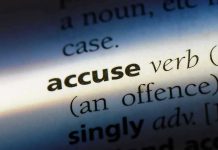
Federal corruption prosecutors have demolished Illinois’ most powerful political dynasty, securing convictions and exposing a cesspool of bribery that cost taxpayers over half a billion dollars annually.
Story Highlights
- Former Illinois House Speaker Michael Madigan sentenced to 7.5 years for running a corruption enterprise spanning decades
- Over 2,300 Illinois public officials convicted in federal court since 1983, making it America’s most corrupt state
- State Senator Emil Jones III’s bribery trial ended in mistrial, highlighting challenges in prosecuting entrenched corruption
- Commonwealth Edison bribery scheme exposed utility companies buying legislative favors through ghost payroll arrangements
Madigan’s Criminal Empire Finally Crumbles
Michael Madigan, Illinois’ longest-serving House Speaker who wielded power for five decades, received a 7.5-year federal prison sentence in June 2025 after his February conviction on ten corruption counts. Federal prosecutors described Madigan and his associates as “grandmasters of corruption” who operated a criminal enterprise disguised as public service. The conviction represents the culmination of years-long federal investigations that exposed systematic bribery, racketeering, and abuse of power at the highest levels of state government.
Acting U.S. Attorney Morris Pasqual declared Madigan’s conviction “ranks high in the annals of criminal cases tried in this court,” reflecting the unprecedented scope of corruption uncovered during the trial. The case relied heavily on cooperating witnesses like former Chicago alderman Danny Solis, who wore recording devices to capture incriminating conversations after being confronted with his own criminal conduct.
Commonwealth Edison’s Legislative Bribery Scheme
The ComEd scandal revealed how utility companies systematically corrupted Illinois legislation by placing Madigan associates on ghost payrolls totaling millions in fraudulent payments. The 2023 “ComEd Four” trial convicted utility executives for their roles in bribing Madigan through no-work contracts and consulting fees designed to secure favorable regulatory decisions. This arrangement allowed ComEd to influence critical energy legislation while Madigan’s network profited from taxpayer-funded contracts and legislative manipulation.
Federal prosecutors demonstrated how Madigan’s dual role as House Speaker and Democratic Party chairman created unprecedented opportunities for corruption, enabling him to control both legislative outcomes and campaign funding streams. The intertwining of political power with business interests created a systematic corruption machine that operated with impunity for decades while Illinois residents paid the price through higher utility rates and compromised governance.
Ethics Reform Remains Elusive Despite Convictions
Despite federal prosecutions securing over 2,300 corruption convictions since 1983, Illinois continues ranking among America’s most corrupt states with an estimated annual economic cost of $550 million from public corruption cases between 2000-2018. The Illinois Policy Institute argues that federal enforcement alone cannot address systemic corruption without comprehensive ethics reforms including independent redistricting, mandatory conflict-of-interest recusals, and limits on legislative leadership power concentration.
Governor J.B. Pritzker maintains that existing laws adequately address corruption, stating officials “are being held responsible under laws that are on the books now.” However, reform advocates contend that structural changes remain essential to prevent future scandals, particularly given the recent mistrial in state Senator Emil Jones III’s bribery case, which demonstrates ongoing challenges in prosecuting complex political corruption even with strengthened federal enforcement efforts.
Sources:
Michael Madigan jury reaches verdict on some charges, deadlocked on others in corruption trial
Madigan gets 7.5 years in corruption case, but Illinois still needs ethics reform
Another Illinois corruption case ends in mistrial

















